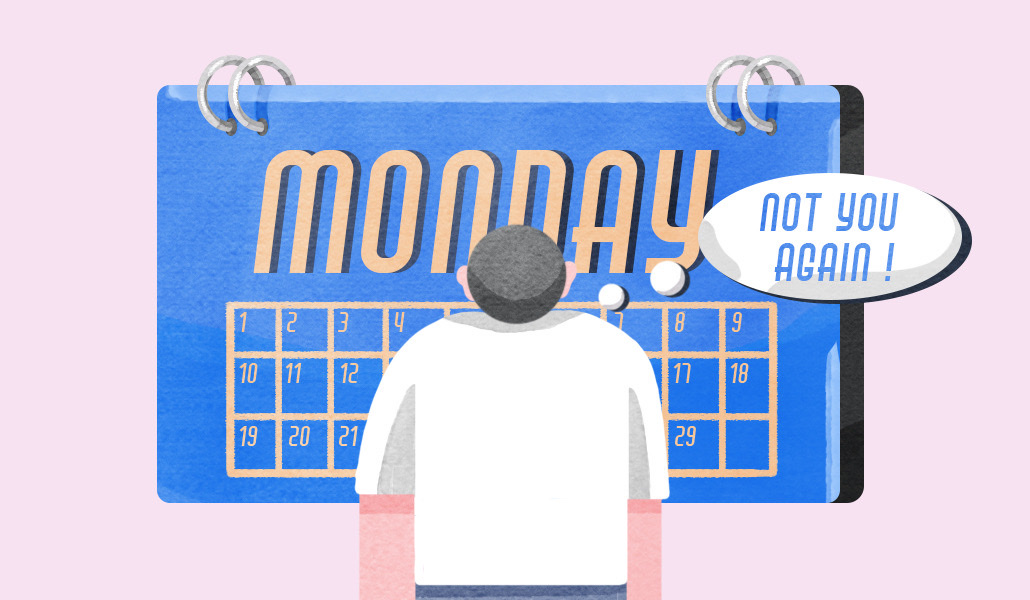Post-PTO scaries leave workers feeling anxious, stressed

Exhausted from work? Take time off.
That’s the cure that most employers suggest when burnout starts to creep in. However, for others, taking time off is far from recharge and rejuvenation, especially when you get closer to returning to work and dread at the thought of the mountain that’s piled up in your absence, starts to creep in.
Some people choose to offset that anxiety by working through their vacations. Two thirds of Americans take this option, according to a recent survey from online learning platform ELVTR. A majority (57%) feel anxious if they don’t check their work emails while away and 46% struggle to switch off during their downtime.
That sense of anxiety has surfaced repeatedly this summer among therapist Nicholette Leanza’s clients. “They have two, three days left on vacation and they’re already thinking ‘oh my gosh, I’m going to be so overwhelmed with everything coming back in,’” said Leanza, therapist at LifeStance Health. “By the time they get back to work, they are already at level 10 with their anxiety. How do we mitigate this?”
Post-vacation scaries, an extreme version of Sunday scaries, are on the rise after being away for a week or more. We talked to Leanza and others to gather realistic tips on how to reduce those feelings of anxiety, and allow people to enjoy and recharge for their full vacations.
1. Create to-do and to-don’t lists
Creating lists to ensure things are finalized before shutting your laptop for a week can be helpful.
“While we can’t control what happens while we are away on vacation, we can control what we do before we leave to help lessen the stress of returning to work and set clear boundaries to manage our return,” said Smriti Joshi, licensed clinical psychologist and chief psychologist at mental health app Wysa.
That means pre-planning and removing any potential stressors. For example, it could involve creating guides and lists on where work projects are at, which makes it easier to dive straight back in after a lengthy PTO. Before Mandy Menaker, a freelance PR consultant, leaves for vacation, she spends time creating a document that outlines everything in motion that she will need to check on when she returns to work.
“This doc serves as a source of truth, so that I don’t need to panic that I forget things while I am away,” said Menaker.
The to-don’t list is a good way to write down important reminders, like not to check email or Slack while away. “Don’t bring work with you on vacation,” said Leanza. “Don’t let it consume your life. Don’t let it stress you out.”
2. Set clear boundaries and communication expectations between coworkers
Before signing off for the week, it’s beneficial to assign tasks beforehand and even organize a knowledge sharing session with the next-in-line colleague so that you know things can keep running smoothly while you’re away.
Joshi and Leanza both suggest establishing a point of contact on your team who can share what you missed upon your return. This can reduce some of the “shock” factor when you sign back on after a long vacation.
One thing though that’s really important is setting boundaries. That might mean informing your colleagues that you will not be looking at your email until the morning you’re back in the office, or will not be doing any work-related brainstorming during travel down-time.
3. Prep your inbox
We all know a strong out-of-office alert can go a long way. When drafting one, it’s important to include other colleagues’ contact information that the person can reach out to instead. Many people also write “in case of an emergency, here’s my cell phone number,” but it’s helpful to go a step further and describe what you would consider an emergency that is worth interrupting your vacation. Without that, one person might consider something an emergency and reach out, when it is in fact not.
Menaker says that on top of setting a solid OOO message on email, she creates special tags for emails that come through while she is away. Once she tags them, she can archive them and know that they will be in that folder ready to respond once she gets to a computer.
“Getting them out of my inbox prevents me from overthinking about how to respond during my personal time,” said Menaker.
4. If the anxiety is still high, it’s OK to check in
While it’s not encouraged to check in on work when you’re on vacation, it might be necessary for workers who are highly anxious about what they are missing out on. To navigate that anxiety, it might be more realistic for that person to check in instead of waiting until it’s worsens.
Leanza suggests that if you go this route, make sure it’s strictly for a small period of time and just the very beginning or end of the day. Shara Seigel, senior director of consumer media strategy at PR company Mission North, checks in during her down times while traveling, like at the airport.
If Menaker is feeling especially stressed after a longer-than-usual vacation, she will sit down the night before her return to work with a cup of tea and go through her emails – a much better route than letting her post-PTO scaries keep her up all night and leaving her tired for work the next day.
“Oftentimes the fear of the inbox is worse than the inbox itself, so it is worth taking a few hours to glance if nervous after a long time away,” said Menaker.
Joshi and Leanza encourage other ways to reduce that anxiety too, which require a bit of self-reflection and mindfulness.
When you’re at the beach, “take a moment to really just allow yourself to be there,” said Leanza. “You can’t simultaneously be in the moment when you are still thinking about work,” she added.
“Remind yourself why you needed this vacation,” said Joshi. “There will always be something left undone or missed on any given day, even for the most well-planned individuals.”
And then when you get home, find time to ask yourself why that work-life balance was so hard to achieve while on vacation. Joshi suggests that employees write down a list of their worries or concerns so that they can see how some stressors are affecting their work-life balance.
“When employees get back from their trip, they should identify the fears or concerns that are triggering their stressful experience and understand what their perceived threat is,” said Joshi.
5. Return to work mid-week and manage your calendar
Leanza suggests choosing Wednesday to return to work after a long vacation. This way, you’re already halfway through the week and it doesn’t feel as overwhelming. Even coming back with just a half-day where all you do is look at emails could be helpful. “It’s about really sinking back in slowly,” said Leanza.
If you can’t return to work mid-week, Menaker suggests at least blocking off three to four meeting-free hours to sort through your inbox.
Whatever you decide, it’s all about getting rid of the expectation that you need to be caught up on everything on the first day you’re back.
“People get stressed out when it’s Friday and they’re still not caught up,” said Leanza. “They beat themselves up and put themselves in a hole for the following week. It’s going back and recognizing ‘I can only do what I can do and it might take some time to get caught back up.’”


